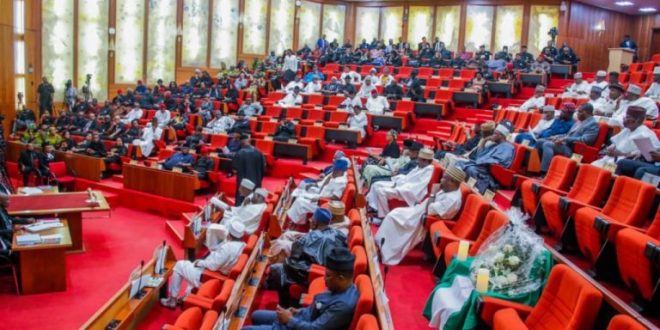The Nigerian Senate is considering a bill to ban the use of foreign currencies for payments and transactions within the country, signaling a push to boost the value and usage of the Naira.
Sponsored by Senator Ned Munir Nwoko, the proposed legislation aims to prohibit salaries and other payments in foreign currencies.
Titled “A Bill for an Act to Alter the Central Bank of Nigeria Act, 2007, No. 7, to Prohibit the Use of Foreign Currencies for Remuneration and for Other Related Matters,” the legislation seeks to restore confidence in the Naira and curtail practices that undermine its value.
Speaking on the rationale behind the bill, Senator Nwoko described the dominance of foreign currencies in Nigeria’s economy as a remnant of colonial influence.
“The extensive use of foreign currencies in our financial transactions continues to erode the value of the Naira and fosters a dependency that hinders Nigeria’s economic sovereignty,” he stated.
The proposed law mandates that crude oil and other exports be sold exclusively in Naira. This would compel international buyers to purchase the currency, creating a demand expected to strengthen its value.
Furthermore, the bill seeks to eliminate informal currency markets, which Senator Nwoko argued encourage unethical practices such as currency round-tripping by banks.
“The Naira must be our pride and the symbol of our economic independence,” Nwoko said. “Relying on foreign currencies weakens our financial system and puts us at the mercy of external influences.”
The bill has sparked a mix of support and skepticism among stakeholders.
Proponents believe it could stabilize the economy and enhance the Naira’s standing.
Financial analyst Dr. Adaobi Eze stated, “If successfully implemented, this law could drastically reduce our dependency on foreign currencies and help stabilize the exchange rate. But implementation will be key.”
Critics, however, question its feasibility, pointing to Nigeria’s reliance on foreign currencies for trade, remittances, and private-sector operations.
“It’s a good idea in theory,” said business consultant Ibrahim Salisu. “But considering the realities of international trade and the global economy, enforcing such a law will be an uphill task.”
Analysts warn that implementing the law could create significant disruptions, especially for sectors heavily dependent on foreign transactions.
Some fear it may inadvertently increase black-market activity, as businesses and individuals seek alternatives to comply with the restrictions.
Nevertheless, Senator Nwoko remains optimistic, emphasizing the long-term benefits. “Economic independence is never easy to achieve, but it is essential for the growth and stability of any nation,” he asserted.
As the bill moves through legislative deliberations, its impact on Nigeria’s financial system and global trade relations will likely remain a topic of intense debate.
 National Telescope national telescope newspaper
National Telescope national telescope newspaper


